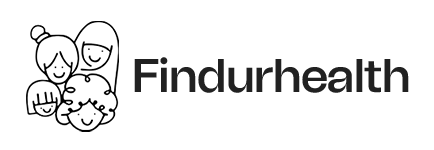
Nutritional Needs for Breastfeeding Mothers
Breastfeeding mothers require extra calories and nutrients to support milk production and postpartum recovery. A well-balanced diet ensures that both mother and baby receive essential vitamins, minerals, and macronutrients. On average, nursing mothers need an additional 300-500 calories per day to maintain energy levels and milk supply. Prioritizing nutrient-dense foods is key to sustaining optimal lactation and overall health.
Best Foods to Support Milk Production
Certain foods are known to enhance lactation and milk supply. Incorporating these into daily meals can help maintain a steady flow of breast milk:
- Oatmeal: A rich source of fiber and iron, supporting milk production.
- Leafy Greens: Spinach, kale, and fenugreek leaves contain essential nutrients and phytoestrogens.
- Nuts and Seeds: Almonds, flaxseeds, and chia seeds provide healthy fats and protein.
- Whole Grains: Brown rice, quinoa, and whole wheat boost energy levels.
- Legumes: Lentils and chickpeas are high in protein and iron.
- Dairy Products: Greek yogurt, milk, and cheese offer calcium and probiotics.
- Healthy Fats: Avocados, olive oil, and fatty fish aid in hormone balance.
Hydration and Its Role in Lactation
Water intake plays a crucial role in maintaining milk supply and preventing dehydration. Nursing mothers should aim for 8-12 cups of water daily, supplementing with hydrating foods like watermelon, cucumber, and citrus fruits. Herbal lactation teas, coconut water, and homemade soups can also support hydration while providing essential nutrients.
Essential Vitamins and Minerals for New Moms
Breastfeeding mothers should ensure adequate intake of these key nutrients:
- Calcium: Supports bone health (found in dairy, almonds, and tofu).
- Iron: Helps prevent postpartum anemia (found in lean meats, spinach, and legumes).
- Vitamin D: Enhances calcium absorption and immunity (found in fortified dairy, fish, and sunlight exposure).
- Omega-3 Fatty Acids: Promotes infant brain and nervous system development (found in salmon, walnuts, and flaxseeds).
- Vitamin B12: Essential for energy production (found in eggs, meat, and fortified cereals).
- Choline: Supports infant brain development (found in eggs, lean meats, and soybeans).
Safe Supplements for Breastfeeding Women
While a well-balanced diet is the best source of nutrition, some mothers may need supplements:
- Prenatal or Postnatal Multivitamin: Ensures continued nutrient intake.
- Vitamin D: Especially important for mothers with limited sun exposure.
- DHA (Omega-3): Supports infant brain and eye development.
- Iron: For mothers recovering from postpartum blood loss.
- Probiotics: Aids digestion and immune support for both mom and baby.
Managing Postpartum Weight While Breastfeeding
Losing weight, postpartum should be gradual to avoid impacting the milk supply. Tips for healthy weight management include:
- Eating balanced meals with lean proteins, healthy fats, and fiber-rich carbs.
- Engaging in moderate exercise like walking, yoga, or postpartum-safe workouts.
- Avoiding crash diets that can deplete energy and reduce milk production.
- Listening to hunger cues and eating nutrient-dense snacks.
Foods to Avoid During Lactation
Certain foods can negatively affect breast milk or cause discomfort in babies:
- Caffeine: Can make babies restless if consumed in excess.
- Alcohol: Should be limited as it passes into breast milk.
- High-Mercury Fish: Avoid swordfish, king mackerel, and tilefish.
- Highly Processed Foods: Contain artificial additives that may impact milk quality.
- Allergens: Some babies may react to dairy, soy, or nuts; monitor for symptoms.
- Spicy and Gas-Inducing Foods: Can cause discomfort in some infants.
Dealing with Low Milk Supply Through Nutrition
If milk supply is low, dietary adjustments may help:
- Increase calorie intake to ensure the body has enough energy.
- Eat galactagogues like fenugreek, fennel, oats, and brewer’s yeast.
- Stay hydrated to support milk flow.
- Consume protein-rich foods for sustained energy and lactation support.
- Consult a lactation consultant if low supply persists.
Meal Planning for Nursing Mothers
Planning meals in advance can help ensure optimal nutrition:
- Breakfast: Scrambled eggs with spinach and whole-grain toast, plus a banana.
- Snack: Cottage cheese with sliced peaches and chia seeds.
- Lunch: Lentil soup with a side of avocado toast on whole-grain bread.
- Snack: A smoothie with Greek yogurt, berries, flaxseeds, and almond butter.
- Dinner: Baked sweet potato with black beans, grilled chicken, and sautéed kale.
- Snack: Warm chamomile tea with a handful of walnuts and dark chocolate.
About Dr.K.Mounika
Dr. Mounika is a highly respected and experienced nutritionist specializing in women’s health. With a deep passion for empowering women, she combines her expertise in nutrition and fertility to provide personalized, evidence-based solutions tailored to meet your unique needs. Driven by a mission to help women thrive, Dr. Mounika has transformed the lives of countless individuals, helping them achieve their health goals and regain control over their bodies.

Choose Your Perfect Package

Make Appointment
Frequently Asked Questions!
What are the best foods to eat while breastfeeding?
Foods rich in protein, healthy fats, whole grains, and leafy greens support milk production and postpartum recovery.
How many extra calories do breastfeeding moms need?
Breastfeeding mothers typically need an additional 300-500 calories per day to maintain energy levels and support milk supply.
Which foods help increase breast milk production?
While breastfeeding, it’s important to limit alcohol and caffeine intake, as these substances can pass into breast milk and affect your baby. Additionally, some babies may be sensitive to certain foods like dairy or spicy foods, so monitor your baby’s reactions.
What foods should I avoid while breastfeeding?
Limit caffeine, alcohol, high-mercury fish, spicy foods, and highly processed foods, as they may affect the baby’s digestion.
How much water should a breastfeeding mother drink daily?
It is recommended to drink 8-12 cups of water per day to stay hydrated and maintain a healthy milk supply.
Can I lose weight while breastfeeding?
Yes, gradual weight loss of 1-2 pounds per week is safe while maintaining a balanced diet and avoiding extreme calorie restrictions.
Do I need to take supplements while breastfeeding?
Many mothers benefit from prenatal vitamins, Vitamin D, DHA (Omega-3), and iron to ensure they meet their nutritional needs.



